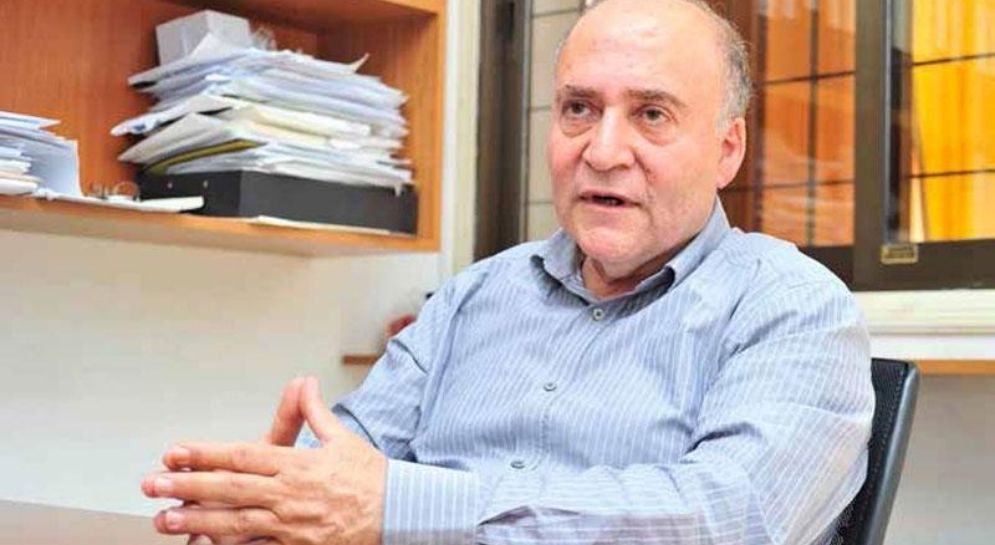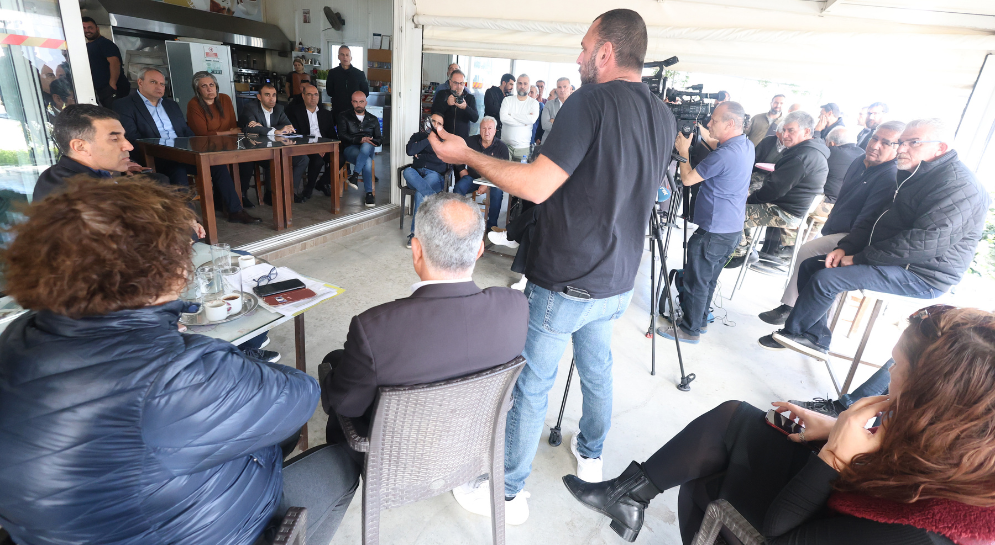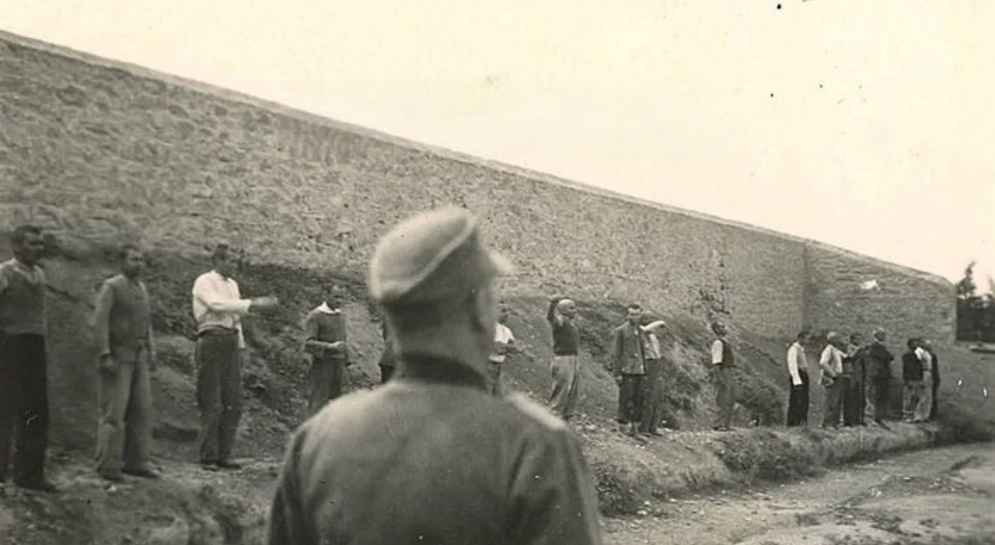
Speech by Toumazos Tsielepis, member of the Political Bureau of AKEL, Head of the Cyprus problem Office of the Party and International Law expert
“THE GUTERRES FRAMEWORK: A MERE CATALOG OF CHAPTERS OR A BASIS FOR RESOLVING THE CORE ISSUES/REACHING A STRATEGIC AGREEMENT?”
6 December 2023, Brussels, European Parliament
Ladies and gentlemen,
Dear friends,
Dear comrades,
Comrade Stefanos has explained in a comprehensive manner AKEL’s position for continuing the negotiation procedure on the Cyprus problem from where it had stopped, with the Guterres Framework and the convergences that have been achieved. It is, of course, well known that in the Greek Cypriot community from the outset, a false and negative perception of the six points of the Guterres framework prevailed. Just recently, however, it has come to my attention that there is a serious misunderstanding of the framework on the Turkish Cypriot side as well, even on a high level too. More specifically, there is the impression that the Guterres Framework is simply a list of six key issues that must be negotiated.
I therefore thought that today is a good opportunity to explain AKEL’s approach to the Guterres framework. I consider this discussion very useful for the additional reason that the mistaken perception of the Framework perpetuates the insistence on timetables, as well as a predetermination of what will happen in the event of a new deadlock. Positions that we understand why they are being put forward, but which create great mistrust on the Greek Cypriot side. I am convinced that a correct interpretation of the Guterres framework renders such discussions unnecessary.
So, what is the Guterres framework? Is it really an empty shell, just mere headings and a list of six key issues to be negotiated? But if that was the case, then why is there so much noise about the framework? Why does the Secretary-General of the UN in his reports persistently recommend its acceptance?
Let us see, then, what the framework actually says, which is inextricably linked to the previous convergences that the Secretary General has repeatedly encouraged both sides to protect (see, for example, para. 17 of his September 2017 report submitted to the Security Council).
Territory: The need to adapt the Map submitted by the Turkish Cypriot side so that it responds to the concerns expressed by the Greek Cypriot side regarding specific regions is stressed. It is evident that he is referring here to regions of Morphou that were included in the Turkish Cypriot side’s Map, but some differences with the Greek Cypriot side’s Map still remained.
I recall that a consensus was preceded at Mont Pelerin; namely, that if the difference between the two sides in terms of the percentage of territory under the administration of each community did not exceed 1% that would mean that there was convergence and that we could proceed to a conference on the issue of security. Indeed, the difference in the Maps that were locked in a Geneva safe deposit box was not only not greater, but was slightly less than 1%. Bearing this in mind, how is it possible to talk about a simple headline?
Political equality: The framework provides for a rotating presidency in a 2:1 ratio and, in relation to the decision-making in general, a simple majority with a single positive vote in cases where the issues are of vital importance to the communities, with a mechanism for resolving deadlocks.
There had been a prior convergence recorded on cross and weighted voting and a consensus that the single positive vote in the Ministerial Council in particular would apply to all issues. Therefore, the Secretary General was absolutely right when he concluded in his September 2017 report to the UN Security Council that by the end of the Crans Montana Conference “the parties had practically reached full agreement on federal executive power and effective participation” (para. 21). Do I perhaps need to say anything more to show that we are not talking about a list of pending issues but about a framework of an advanced, if not fully agreed, convergence on the contentious issue of political equality?
Property: The framework provides for two regimes. For areas subject to territorial adjustment, the priority of choice will be given to the owners. On the other hand, for the areas not subject to territorial adjustment, priority will be given to users.
Therefore, the most important issue, i.e. who has the first choice, is addressed in the framework. From there onwards, there are already specific convergences recorded that clarify that the properties belong to the owners, but there are three remedies offered (return, exchange, compensation) and regulate which categories of properties fall under one or the other remedy. Of course, there remain issues to be regulated, but surely the Secretary General’s framework, always in combination with the convergences, is far from being a headline without any content.
Equitable treatment: the framework provides for free movement for tourists, students and seasonal workers. From there onwards, Greek and Turkish citizens seeking permanent residence will be given equivalent treatment.
To avoid any misunderstanding, I note that equitable treatment does not mean numerically equal treatment, but fair treatment. There is already a convergence recorded on a 4:1 ratio regarding the granting of citizenship to Greek and Turkish citizens, which is also a provision of the 1960 Treaty of Establishment. The document of the UN on the convergences 2008-2012 (p.68) records that Turkish citizens will enjoy the four freedoms of the EU, but in a way that does not violate the demographic ratio and that this convergence presupposes an agreement on the issue of Turkish citizens who will be living on the island after the solution.
All of the above demonstrate that not even on this issue can it be said that there is simply a headline, given that the key issue, namely the granting of citizenship, has already been resolved. All the issues that remained, at worst, were at an advanced stage of resolution, always in line with existing convergences.
Security and guarantees. The framework makes it explicitly clear that a system with continued intervention rights would not be sustainable. For that reason, areas under the Treaty of Guarantee could be replaced by appropriate mechanisms for implementing the solution, in some of which the guarantor powers could get involved.
At the working dinner at Crans Montana, the UN Secretary General did indeed submit a document on the implementation mechanisms which makes it clear, among other things, that the guarantor powers, together with the two communities and the United Nations, which will chair it, will participate in an implementation committee without having any executive or editorial role. By definition, guarantor powers are only those powers which actually enjoy such roles and therefore it is clear that the implementation mechanism was intended to replace the Treaty of Guarantee, which is fully in line with what the Secretary General told Mr. Anastasiades during their last meeting before the working dinner.
In this way, the burning issue of security would be resolved and therefore we are not talking about a simple headline without any content, but about overcoming one of the most important obstacles to a successful outcome.
Troops. The framework makes it clear that this issue is different from that of the Treaty of Guarantee and that the relevant issues would have to be agreed at the highest level.
It is perhaps known that there was a convergence recorded on the withdrawal of troops except for the ELDYK and TOURDYK contingents[1] (950 and 650 troops respectively) where a disagreement remained as to whether there would be a sunset clause or a review clause and when that would be. Therefore, here too the difference was small.
From the above analysis, the conclusion to be drawn with certainty is that the Guterres framework is not a simple list of headings to be negotiated, but almost a convergence on the six core chapters of the Cyprus problem. We came so close to reaching a strategic agreement that would essentially make a successful conclusion to a comprehensive settlement inevitable. It is precisely for this reason that the Secretary General of the UN in his aforementioned report states: “During a dinner for the heads of delegation, I shared my assessment that there was a broad understanding of the parameters of the potential strategic agreement.” (para. 25). Furthermore, in the report’s conclusions, he stresses that, “The parties had come close to reaching a strategic understanding on security and guarantees, as well as on all other outstanding core elements of a comprehensive settlement.” (para. 45).
It is precisely for this reason that the Secretary General insisted on continuing the talks from where they had left off, with his framework and the convergences, because this would enable us to reach a strategic agreement. Such a development in itself would have rendered the insistence on timetables unnecessary since we had come within touching distance of resolving the core issues.
Of course, further negotiation of the framework is needed in order to reach a strategic agreement, but this must concern the outstanding issues and not reopen existing convergences. Picking up where we had stopped also renders unnecessary any speculation about predetermining the subsequent course in case of failure, as the resolution of the core issues drastically reduces the risk of failure and makes the resolution of the remaining issues inevitable.
The above-mentioned analysis explains why AKEL fully shares the Secretary General’s approach of continuing the negotiation from where it had remained with the Guterres framework and the convergences achieved. The argument that the two sides disagree on exactly where we had stopped is untenable because the UN knows exactly where we had remained. Indeed, they may well do what they did in 2013: they recorded the convergences and handed them over to the two leaders.
Last but not least: do we really believe that Turkey and the current Turkish Cypriot leadership are capable of accepting a continuation of the negotiations from where we had stopped?
Only if they are tested with a positive agenda as Stefanos has already explained will we know: by accepting political equality including, among other things, a rotating presidency and a single positive vote in the Ministerial Council, as well as making use of the energy issue as a catalyst.
We believe that this is the only way forward for the resumption and speedy successful conclusion of the negotiation procedure for the benefit of all the parties involved.
[1] The 1960 Treaty of Alliance provided for the stationing on the island of the Greek Force in Cyprus (ELDYK) and a corresponding force called the Turkish Force in Cyprus (TOURDYK) composed of 950 and 650 soldiers respectively.

Tsielepis




